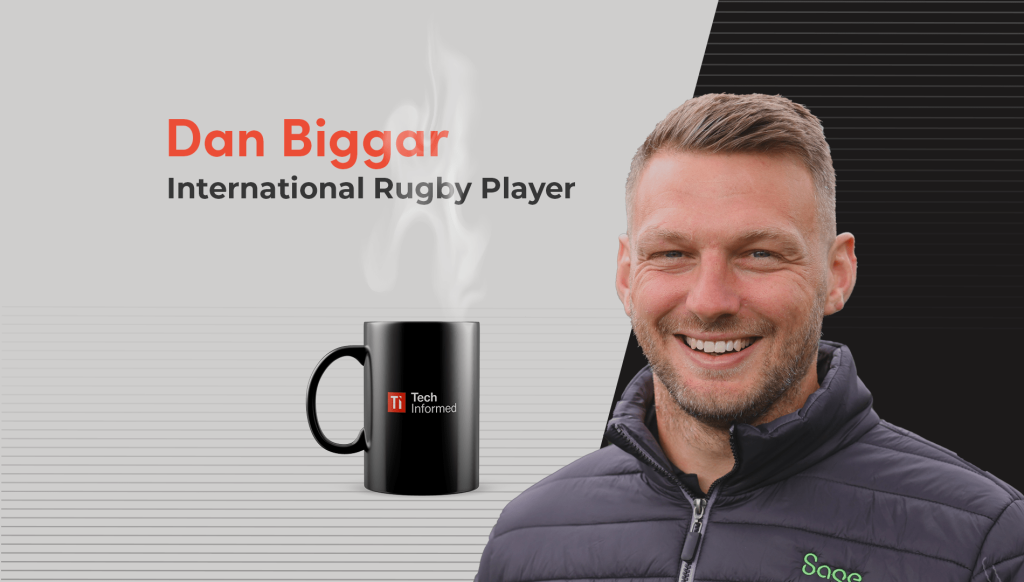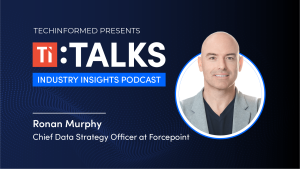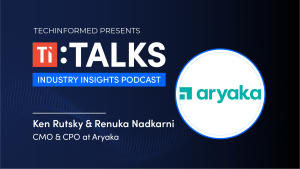

Dan Biggar, International Rugby Player
Between 2008 and 2023, Dan Biggar made more than 110 international appearances for the Welsh Rugby Union team, racking up 633 points. The soon-to-retire Toulon fly-half, who made his senior debut for Ospreys in 2007,…
Between 2008 and 2023, Dan Biggar made more than 110 international appearances for the Welsh Rugby Union team, racking up 633 points. The soon-to-retire Toulon fly-half, who made his senior debut for Ospreys in 2007, admits he was a reluctant adopter of technology and data in his sport – but he has since become a huge advocate, taking his experience of using analytics to talks across the globe.
Biggar – who had also been selected for the British and Irish Lions three times – has spoken of how he uses data analysis with partners such as Sportable and Sage to improve his own kicking, and appears regularly as a pundit on channels like TNT Sports and his podcast, A Load of BS on Sport. After 18 years as a professional, Biggar recently announced his plans to retire at the end of the coming season.
After giving TechInformed a special lesson in rugby kicking at an event demonstrating sensors in rugby balls, he sat down over a coffee to discuss how tech has impacted his career.
What’s your relationship with technology?
I wouldn’t say I am particularly technical; I can get my way around a computer and the basics.
But what I have found, certainly over the last five years or so, is the importance of having access to it.
Last year I bought a MacBook and now I think “how did I manage my life without it?”
How has technology intersected with your professional rugby career?
The game is getting more and more competitive these days, so you have to find ways of bridging the gap or getting over the line.
In the early days, I would very much act based on emotion or instinct. If I felt something, it must be right, because there was no other explanation. Even if we then looked back at the analysis, I’d lean towards my instinct.
In the last five or so years, I’ve begun to use more stats and data in my training sessions or after games to help judge my performance and to see what actions I need to take. Having the tech and the data it provides prevents me from acting like a bull in a china shop as much.
Has that shift been pushed on you from coaches within the game, or is it more driven by your own interest?
Some of it is definitely coaching-led, but I think you have to also actively embrace the change in order to get the most out of it. I initially didn’t see the value in it, but there was a light bulb moment where I realised it could help give me that extra percentage I need to be better than my rival players.
I don’t need the analytics to be better than an amateur player, but if it speaks to the analysts and gives me an edge over the likes of Owen Farrell or Johnny Sexton that I might not get from just training more, then that can really help the team.
I began to speak more and more to our analysts about X, Y or Z, and looking at additional video footage from games and training sessions. Careers in sports can be very short, so if it can make me better, then I want to get involved immediately.
I’ve benefited massively from it, and now that I am coming to the latter part of my career, I am starting to think of how it connects to the business side of things. There is a huge overlap and huge benefits to understanding how to get the most out of data, and understanding what your data is actually telling you.
You mentioned a post-career on the business side of things. Is that something more sports people are looking into?
Lots of the boys go into the media side once they retire from playing, but there is only a certain number of jobs that people can have in that area. That means many are looking at consultancy, coaching and even business as options for their next steps. And the question then is what do you bring that is different to somebody else.
It is about preparation – do you know the company? Do you know the numbers? Do you know the stats on X, Y, and Z?
I love producing data packs because it is often too easy to get lost in the numbers. There is a lot of raw data that nobody really needs, but the beneficial stuff, focusing on a specific target audience or use case, can have a real impact.
Data is such a key part of being prepared, whether that is real world meetings with business people, or going into a big rugby match.
I’m comfortable in my sport, and I tend to know a lot more in that sense. But I think it’s really important that you’ve got your key stats and your key data, which provide that. When you go further into the business world, you need those datapoints on how you manage your finances; How do you employ people? I’ve really enjoyed that side of it, comparing and contrasting and but still having that instinct where you think, okay, this is what my gut is telling me, but how does the data compare to that?
Do you have an example of when data analytics has helped you improve the way you play rugby?
It was the 18/19 season, ahead of a game against Gloucester, and we were tasked with putting together an analysis of an opposing player. I just thought, “I already know it all” – I felt I didn’t need to look at the data. But when I was called in to present in front of the coach, I scribbled down my thoughts on a piece of paper and afterward, I felt so embarrassed.
From that day forward, every Sunday or Monday, I started looking at the video footage and pulling together a cheat sheet with all of the key information about my opposite number and how the opposition team played.
I needed that, because I needed to back up what I thought from a stats point of view and with data, but also, it just gives other people confidence, whether it’s in business or whatever, that you’ve done some research, done some data analysis, got the numbers, etc, which hopefully then installs a lot more belief in your boss and you peers.
What piece of technology could you not live life without?
Basically, I think my whole life is on WhatsApp. I’m probably not alone in that sense. But honestly, if WhatsApp got deleted off my phone, it would be a major ordeal to get numbers and documents and bits and pieces, back off that. I think probably, WhatsApp would be the one which I would be lost without
Is there any area of technology that particularly excites you at the moment?
I love the idea of AI. I don’t know enough about it to have a strong opinion but I love the talk of where is going to go.
A funny example of this is I was recently due to do a talk with [cyclist] Geraint Thomas but I had a few really busy days in training, so I asked my wife if she could help me do some research on him.
I knew by the Monday she had forgotten about it, so on the Tuesday – the day before the event – I reminded her. I phoned her as I was leaving training, but I could tell she still hadn’t done it, but by the time I arrived home, she had printed off this incredibly detailed document, full of numbers and stats.
I told her she had done an incredible job, and she just smirked back at me, saying she had done it all with the help of AI. If she hadn’t told me, I wouldn’t have thought she’d put in hours of research, and this is the way the world is going, so I am incredibly excited by the potential of AI.
Lastly, how do you take your coffee?
I’m flat white, every day of the week. I live in France, and if you have even a drop of milk with your coffee, they look at you like you’ve sworn at them. Flat white,100%.









